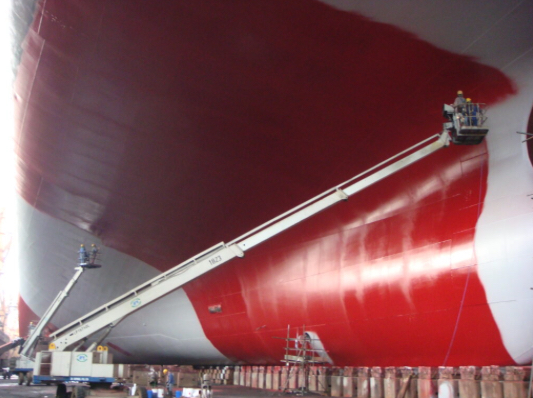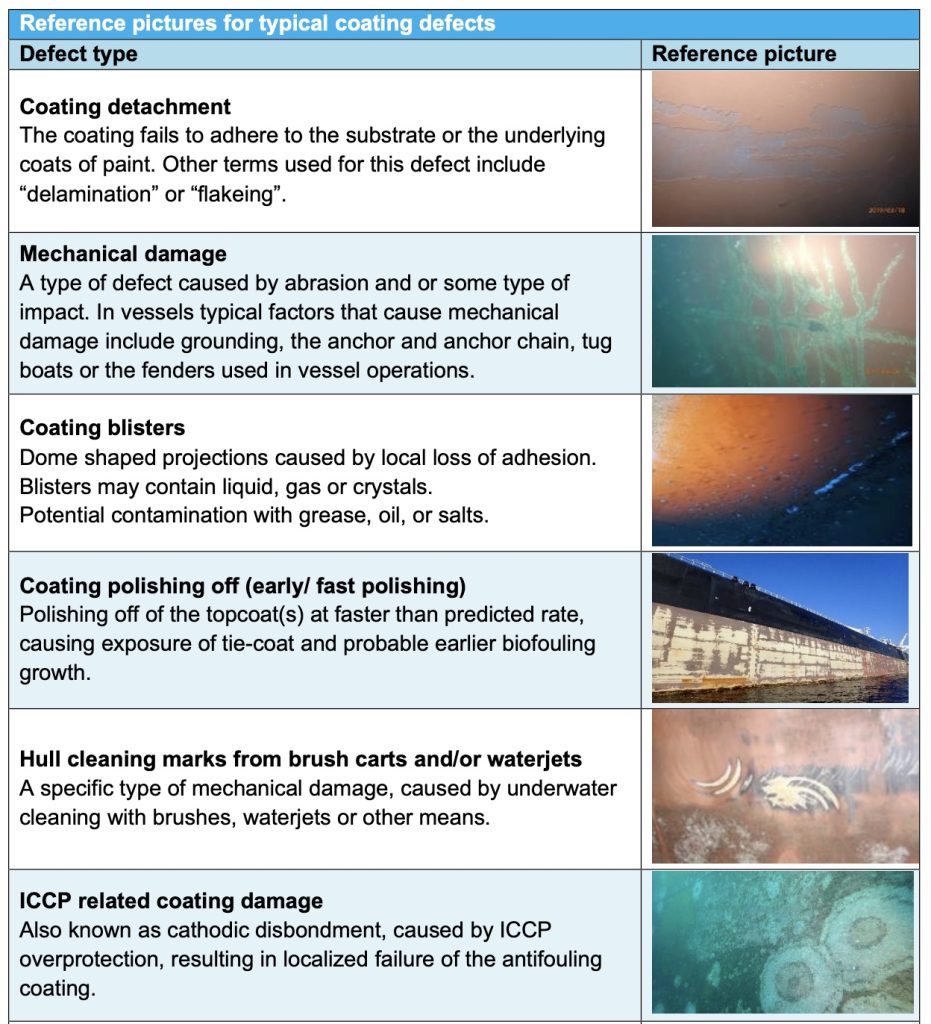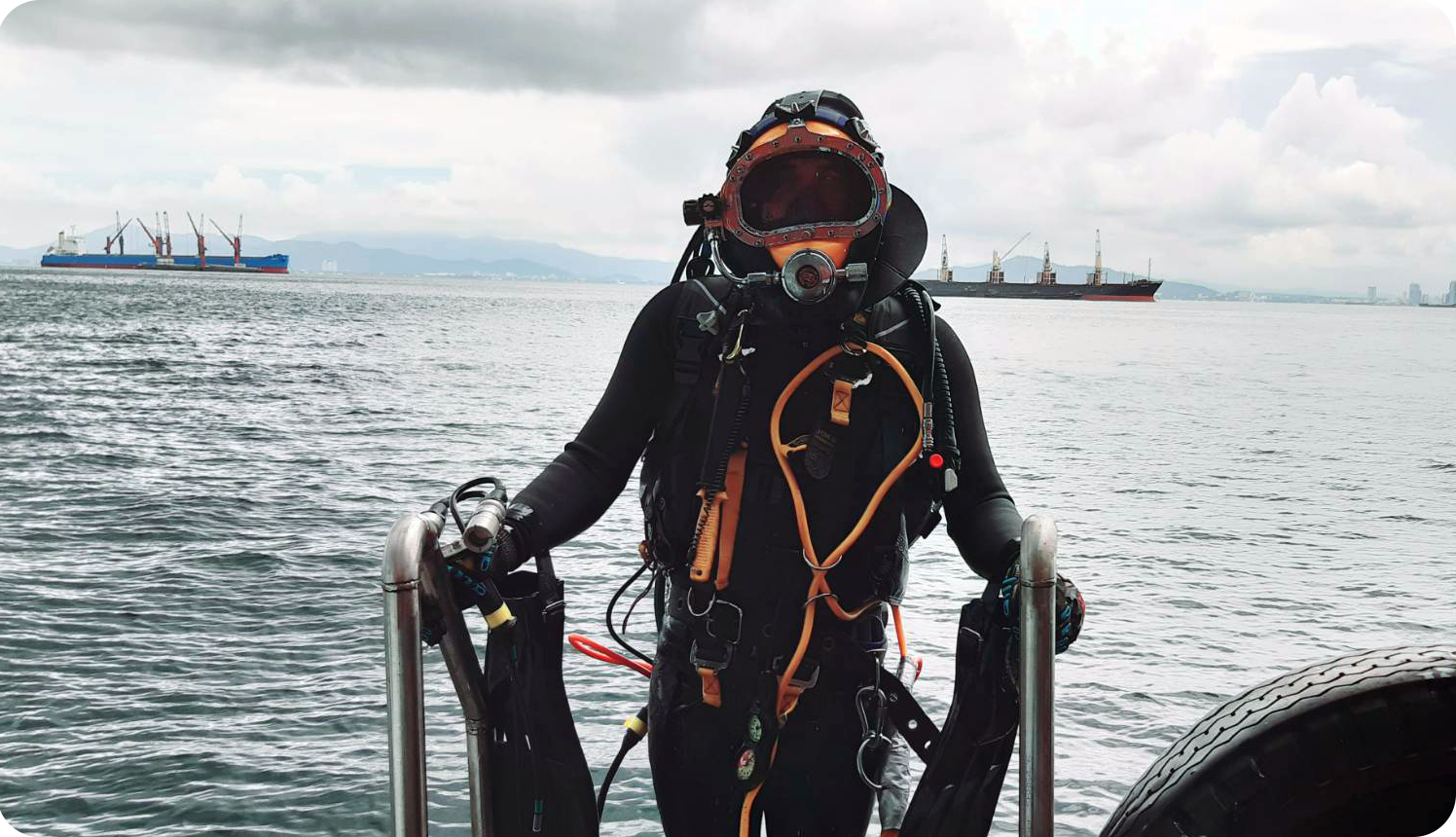Vessel hull coatings are a vital component in the maritime world. In this blog, we will dive deep into the world of hull coatings, exploring their significance, types, and the numerous advantages they bring to the maritime industry. Additionally, we will highlight the importance of proper coating assessments and inspections.

The Hull Coating’s Role
The hull of a ship is its first line of defence against the corrosive forces of the sea and hull coatings are the protective shield that keeps it intact.
Hull coatings is applicable for all vessel types and ages, with re-coating being carried out generally every fifth year (during dry dock).
With an expected price tag ranging from US$30,000 to US$500,000, this equates to a very costly paint job!
Here’s why these Coatings are so Essential
- Corrosion Protection: Put simply, hulls are made from steel and seawater is corrosive to steel. Therefore, prolonged exposure can lead to significant corrosion damage to a vessel’s hull. Hull coatings act as a barrier, preventing the corrosive effects of saltwater.
- Marine Growth Prevention: Considered to be one of the most important marine growth prevention systems, hull coatings deter organisms like barnacles and algae from attaching to the hull.
- Smooth Sailing: Coatings make the hull smoother, reducing drag and improving the ship’s fuel efficiency, speed and safety.
Types of Hull Coatings
Hull coatings come in various types, each tailored to specific needs and environmental conditions:
- Antifouling Coatings: Some antifouling coatings contain biocide chemicals that impede the growth of aquatic organisms. They are particularly crucial for vessels that remain stationary for extended periods. Effects of Marine Growth on Your Vessel.
- Epoxy Coatings: Epoxy-based coatings are known for their durability and adhesion properties. They are often used as a primer or intermediate coat in multi-layer systems.
- Silicone Coatings: Silicone-based coatings offer excellent resistance to water and UV radiation. They are suitable for vessels operating in harsh marine environments.
- Polyurethane Coatings: These coatings provide exceptional abrasion resistance and can be used on both new builds and for maintenance purposes.
- Self-Polishing Coatings: These high-tech paint coatings are designed to wear down smoothly while the vessel is in motion, minimizing hull resistance.
Benefits of Hull Coatings
Investing in high-quality hull coatings provides several advantages to shipowners and operators:
- Cost Savings: Hull coatings reduce maintenance costs by extending the time between dry-docking and minimizing the need for repairs due to corrosion or marine growth.
- Fuel Efficiency: Smoother hulls reduce drag, resulting in improved fuel efficiency and reduced greenhouse gas emissions.
- Longer Vessel Life: By protecting against corrosion, hull coatings extend the lifespan of a vessel, providing a better return on investment.
- Enhanced Safety: A well-maintained hull ensures the structural integrity of the ship, contributing to safer navigation.
Inspection of Coatings
Regular in-service inspections and surveys should be conducted between dry dock periods.
Inspection requests may be made by paint manufacturers, applicators, clients, and insurance providers to highlight and address any areas of concern pertaining to the integrity of the vessel’s hull coating.
Inspection may be scheduled, or take place after an incident or end-of-warranty contract.
Routine checks are generally carried out by crew members in conjunction with site or product surveyors. However, commercial divers would be the only suitable personnel to perform underwater inspections of the wetted areas of the hull, particularly, it’s subsea portions.
Multiple types of coating defects and anomalies may be sighted and reported during a typical coating survey. A diver may classify them into either construction or in-service type defects, however, depending on the defect, the underlying cause of the issue may vary.
Coating Defects
Construction Defects:
This may be caused by improper or incomplete cleaning of the hull prior to application, or under & over-application of the coating, using sub-optimal products, or painting during less-than-standard weather conditions.
These types of defects may be identified as de-lamination, bridging, flaking, peeling, etc.
Additionally, internal stresses or gases inside the hull plating or may cause cracking and blistering to the coating.
In-Service Defects:
These are the result of damage caused during the normal working life of the vessel.
Examples of in-service defects are, mechanical abrasions caused by anchor chains or impacts from floating debris, and scoring marks caused by poorly executed underwater cleaning operations.

Vessel hull coatings are indispensable in the world of maritime transportation. They protect ships from the harsh elements of the sea, extend their operational life, and contribute to fuel efficiency and environmental sustainability.
As technology continues to advance, we can expect even more innovative and eco-friendly hull coatings to emerge, further enhancing the maritime industry’s ability to navigate the world’s oceans efficiently and responsibly.
It is understood that companies strive to keep dry dock costs as low as reasonably possible, and with such wide range of coating price points available, it appears to be an easy way to save. However, it is highly recommended to select reputable coating products and applicators to prevent higher associated running and repair costs later down the line.
Additionally, it is also imperative to carry out coating assessments, surveys and underwater inspections using reputable diving companies.
Choosing a knowledgeable commercial diving company ensures a you will receive an accurate and fair assessment on your vessel’s coating condition. It will also ensure the correct defects and anomalies have been identified and highlighted so that proper remedial action can be planned.
Thai Subsea Services Ltd. is a fully Class approved commercial diving serving the Kingdom of Thailand.
Their trusted dive teams routinely carry out underwater coating inspections for paint manufacturers, shipyards, applicators, and insurance warranty companies.





